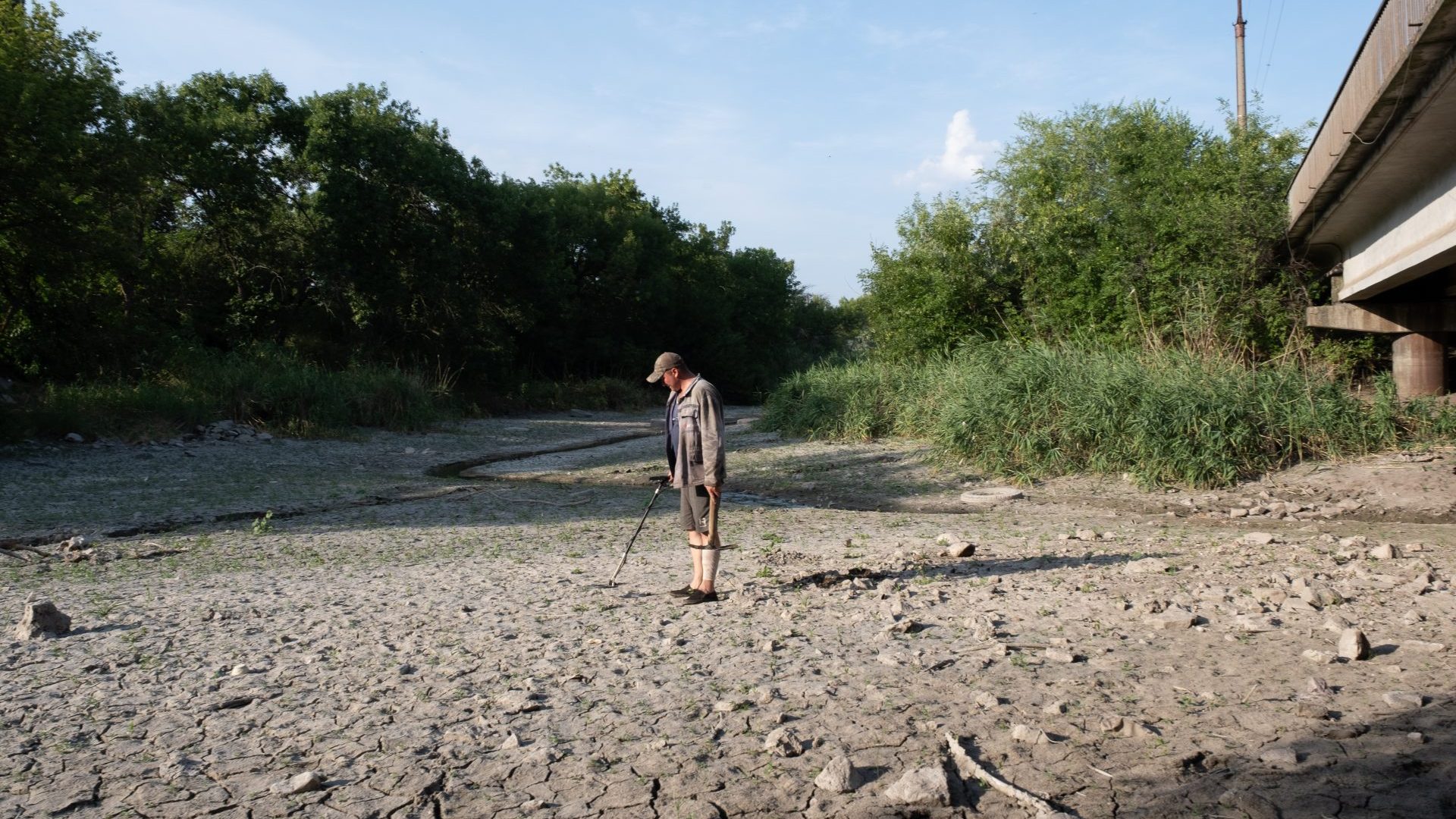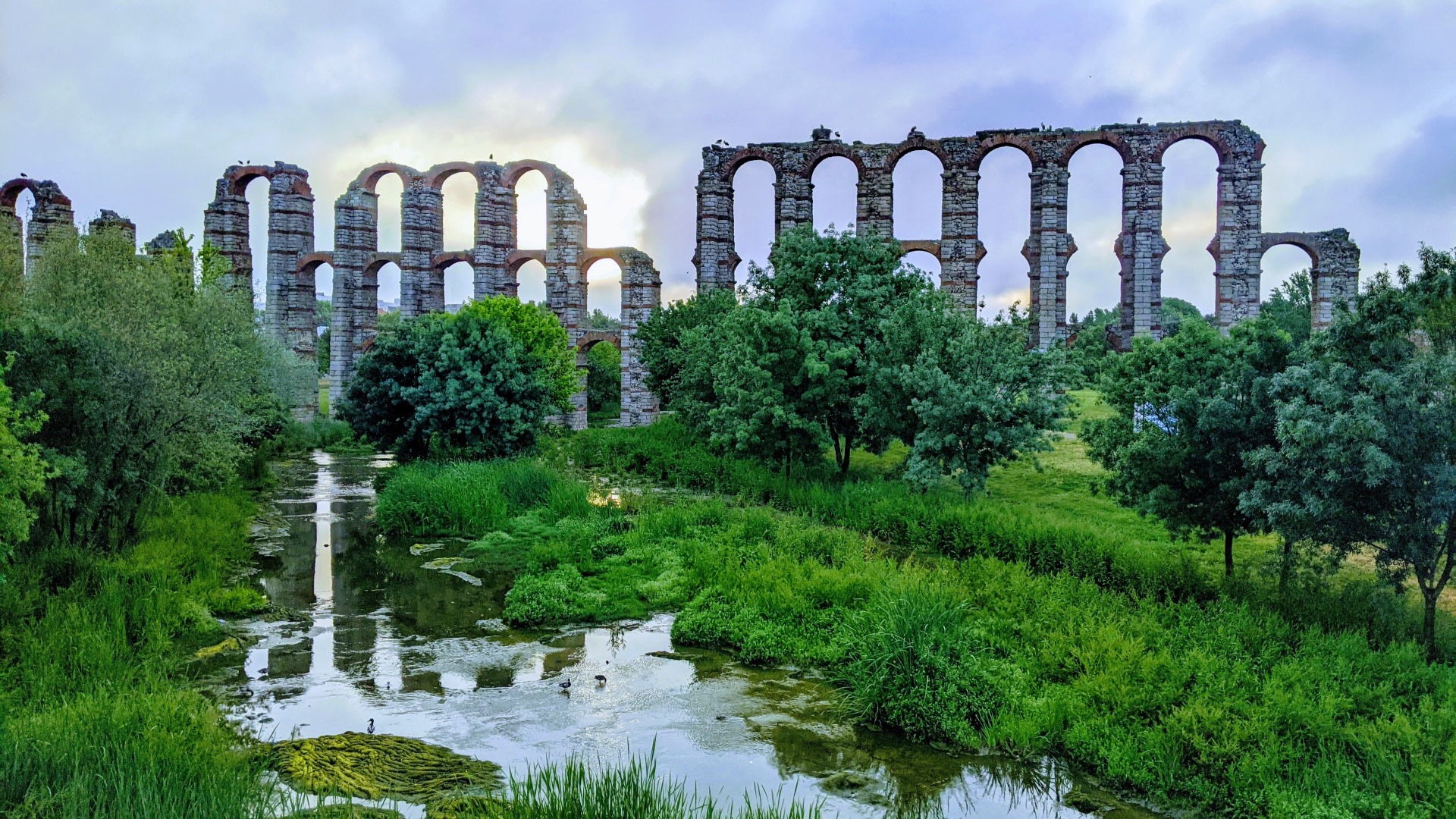Floods, as they say, are acts of god, but flood losses are generally acts of man and should be punished accordingly. But what if both the floods and flood losses are caused by man? By many men, an army even, while a hot war rages?
The catastrophic collapse of the Kakhovka Dam in war-hit southern Ukraine, which has left thousands of acres of flooded farmland and homes, is pushing ecocide to the forefront of a charged international debate. Does the world need a bespoke mechanism to extract retribution for wanton and widespread crimes against the natural environment? Should ecocide be internationally recognised a crime as horrific as genocide?
It is certainly just as traumatic and gruesome, as shown by the unfolding humanitarian, economic and environmental aftermath of the Kakhovka Dam’s destruction. Shoals of fish have been left gasping on mud flats; a ragged trail of drowned birds’ nests, trees and plants runs through the area; tens of thousands of people are displaced, with nowhere to go, nothing to eat, no reliable sources of water to drink and no long-term source of livelihood. A hydroptic sweeping waste, to use the late great Cormac McCarthy’s words, has replaced once-rich fields on both sides of the Dnipro River.
Late last month, satellite images analysed by the BBC showed that the Kakhovka reservoir, one of Europe’s largest and a critical drinking and irrigation source for the region, was starting to dry up. This could turn southern Ukraine’s fertile land into desert by next year. The United Nations has said the devastation will have a “huge impact on global food security” because the area was “a breadbasket not only for Ukraine but also for the world”.
The emptying reservoir is also raising safety concerns at the Zaporizhzhia nuclear power plant because it was its primary source of cooling water. Meanwhile, rare wildlife species endemic to Ukraine, including the Nordmann’s Birch Mouse, Tapinoma kinburni ant and a short-headed cornflower have lost their habitats to the waters and are under threat. The flow of fresh river water into the Black Sea is also thought likely to affect the aquatic ecosystem.
Unsurprisingly then, Ukraine’s president, Volodymyr Zelensky, has called the dam breach “an environmental bomb of mass destruction” and even his Russian counterpart, Vladimir Putin, was moved to describe it as an “environmental and humanitarian catastrophe”, which he said was caused by a “barbaric act”.
But how to determine who committed the barbaric act, how to establish culpability and by what authority might it be punished?
The tragic aftermath of the Kakhovka Dam breach is the third time in just over 50 years that ecocide in the time of war is in serious international focus. The first was in the early 1970s, soon after the term ecocide was coined by Yale biologist Arthur W Galston to describe the deleterious environmental effects of Agent Orange, a defoliant sprayed by the Americans on enemy territory during the Vietnam war. Soon enough, the then Princeton professor of international law, Richard Falk, was proposing an International Convention on the Crime of Ecocide in the weighty journal Revue Belge de Droit International. It didn’t get very far.
A half-century on from his 1973 article, Falk told the New European of the subtle change in his position. “I now think that harmful environmental side-effects of war policies should not be dealt with separately from similar side-effects or direct effects of peacetime activities such as deforestation of rainforests, extractive mining operations, fossil fuel spills, nuclear and plastic waste disposal,” he said. Instead, there should be: “One lawmaking treaty (similar to the Law of the Seas or Antarctica treaties) for environment harm caused by normally lawful activities due to negligence, ignorance, and unduly prioritising profits or economic growth. And a second legal instrument for addressing deliberate, large-scale, and systematic policies and practices,” that cause environmental harm. This could be, Falk says, “an Ecocide Convention analogous to the Genocide Convention.”
This view is echoed by Jojo Mehta, co-founder and executive director of Stop Ecocide International (SEI), which was formed six years ago to campaign for ecocide to be recognised as an international crime. “Environmental damage in wartime is largely perceived as ‘incidental’ by aggressors, historically and still today,” she says. “It is essential therefore to recognise ecocide as a crime in its own right, applying in both peacetime and conflict, as a more effective deterrent to severe and either widespread or long-term environmental harm.”
But can it happen? SEI’s proposal to amend the Rome Statute, the founding treaty of the International Criminal Court, to include ecocide has been debated in the UN and the European Parliament, but Falk says that “even this mild step seems to lack sufficient political traction to be adopted, and if adopted, to be implemented where most needed”. Even so, the European Parliament voted in March, three months before the Kakhovka disaster, for ecocide to become European Union law. Soon after, the European Economic and Social Committee delivered an opinion calling for the criminalisation of ecocide. Kakhovka provoked some stirring among lawmakers in the United States too, with Bob Menendez, chair of the United States’ Senate foreign relations committee, arguing that “we have to recognise that this is not only a war crime, but it is an environmental crime and the United Nations has to take up the action”.
At the end of June a new, high-profile international working group on the environmental consequences of war, which includes senior European politicians and Greta Thunberg, held its inaugural meeting in Ukraine. After meeting Zelensky, Thunberg declared: “I do not think that the world reaction to this ecocide was enough. We have to talk louder about it.”
Action may not follow words. It was 20 years after the post-Vietnam war flurry that the international drumbeat on ecocide restarted. When Iraq invaded Kuwait in 1990, the international coalition mounted a crushing response and Iraq countered with scorched-earth tactics that involved an estimated 80% of Kuwait’s 950 oil wells. Retreating Iraqi soldiers pumped several million barrels of oil into the sea, leaving an oil slick over 350 square miles of the Persian Gulf as well as thousands of dead or dying birds and other wildlife. Finally, they set the wells ablaze, creating “hellish scenes of smoke and fire”, according to environmental researchers.
More than 30 years later, dry oil lakes still cover Kuwait’s contaminated soil, and petroleum hydrocarbons have seeped into its fresh groundwater aquifers. Though Iraq has paid out more than $50bn in reparations to claimants worldwide for losses incurred during that war, and only a relatively small payment of $1.7bn was outstanding to Kuwait as of April 2021, there is no realistic way to put a price tag on severe environmental damage. As Falk points out: “The aftermath of environmental warfare in the Vietnam war included long-deferred birth deformities that continue to occur 50 years after the end of combat as a result of stockpiles of Agent Orange being left behind by US forces, and over time seeping into soil and waterways, with toxic consequences on genetic structures of humans and animals.”
The 2003 US invasion of Iraq had its share of ecocide warnings. At the time, Gar Smith, co-founder of Environmentalists Against War, was editing Earth Island Journal, which he says was “one of the first publications to draw attention to the environmental impacts of war”. It covered “the impact of the oil fires and spills that ravaged the Gulf nation” and the widespread environmental damage as a result of US military action.
Fast forward to 2023, and Ukraine and Russia are blaming one another for the dam breach, but there is no definitive evidence either way. Seismic data indicates Kakhovka suffered a devastating internal explosion before it collapsed on June 6, and experts assisting Ukraine’s Office of the Prosecutor General from the human rights law firm Global Rights Compliance have said it’s “highly likely” Russia was responsible.
But in the court of world opinion, the jury is not just divided, but hopelessly po-faced. Of the UN’s 197 member states, 21 countries have explicitly sided with Ukraine, three with Russia, 25 have deplored the dam destruction without blaming either Ukraine or Russia, six issued a neutral statement about the breach and the overwhelming majority – 148 – have stayed silent.
It is this silence on ecocide that Thunberg is now calling on the world to break. But for ecocide to be recognised as an international crime, there needs to be a coalition of several key push factors, says Suwita Hani Randhawa, a lecturer at the University of the West of England: “A global consensus on the legal definition of an act; the presence of global agitators actively pushing for it to be criminalised; and compatibility with existing international priorities and global sentiment”.
A lingering sense of horror over the second world war enabled Polish lawyer Raphael Lemkin to push for recognition of genocide as an international crime in 1948. Lemkin had cobbled the term genocide from the Greek word genos, meaning race, and the Latin suffix cide, to kill. The zeitgeist was with him. Four specific acts – genocide, war crimes, crimes against humanity and the crime of aggression – were recognised as international crimes soon after the second world war.
But for ecocide to become the fifth, says an academic paper by Randhawa, whose doctoral research examined how and why certain acts were established as international crimes, there must be “an external condition… a pivotal event… a global disaster or catastrophe, or the existence of a political shock”.
The Kakhovka Dam collapse has all the makings of a political shock, but will even this catastrophe be enough to push ecocide from war casualty to war crime?




